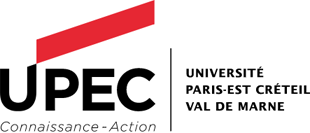- Télécharger en PDF
-
Partager cette page
- Télécharger en PDF
Vous êtes ici :
- Accueil ›
- Membres du LIRTES ›
- Membres statutaires
KHACHAREM Aïmen
Maître de conférences en STAPS
 Thèmes de recherche
Thèmes de recherche
Aïmen Khacharem est Maître de conférences en STAPS à l’Université Paris-Est Créteil. Il a obtenu sa thèse de doctorat en Sciences du Mouvement Humain de l’université d’Aix-Marseille. Ses recherches s’intéressent aux processus cognitifs qui sous-tendent l’acquisition et le développement de l’expertise, en particulier l’apprentissage moteur, l’anticipation et la prise de décision. Ses recherches portent également sur la mise en place d’environnements pédagogiques qui visent à développer les habiletés tactiques des athlètes débutants et professionnels (ex. intelligence du jeu, prise de décision et créativité). Il a plus de 30 articles scientifiques et chapitres de livres dans le domaine de la performance sportive. Il est relecteur scientifique pour plusieurs revues de psychologie du sport et de science du sport.
Mots-clés : Imagerie mentale, apprentissage, performance, sports collectifs, expertise, modélisation, designs pédaogiques.
 Activités d'enseignement
Activités d'enseignement
Il effectue des CM et TD en Licence et Master. Quatre blocs thématiques:
a) Coaching et apprentissage moteur (Licence et master eops);
b) préparation mentale (master EOPS)
c) analyse de la performance sportive (master EOPS)
et d) suivi des stages (master eops)
 Responsabilités scientifiques, pédagogiques et administratives ces cinq dernières années
Responsabilités scientifiques, pédagogiques et administratives ces cinq dernières années
Responsable du Master 1 Entrainement et Optimisation de la Performance Sportive
 Publications des cinq dernières années (2018 à 2022)
Publications des cinq dernières années (2018 à 2022)
- Chikha, H. B., Zoudji, B., & Khacharem, A. (2023 in press). Coaches’ pointing gestures as means to convey tactical information in basketball: an eye-tracking study. International Journal of Sport and Exercise Psychology, 1-14
- Ben Chikha, H., Zoudji, B., & Khacharem, A. (2023 in press). Using pointing gestures to convey tactical information: investigating the roles of expertise and complexity. Psychological Research, 1-11.
- Romdhane, M. B., & Khacharem, A. (2022 in press). Controlling the display of videos in a physical education context: effects on learning outcomes and situational interest. Physical Education and Sport Pedagogy, 1-13.
- H'mida, C., Kalyuga, S., Souissi, N., Rekik, G., Jarraya, M., & Khacharem, A. (2021). Is the human movement effect stable over time? The effects of presentation format on acquisition and retention of a motor skill. Journal of Computer Assisted Learning, 38(1), 167-177.
- Chikha, A. B., Khacharem, A., Trabelsi, K., & Bragazzi, N. L. (2021). The Effect of Spatial Ability in Learning From Static and Dynamic Visualizations: A Moderation Analysis in 6-Year-Old Children. Frontiers in Psychology, 12.
- Saddoud, A., Khacharem, A., H’Mida, C., Trabelsi, K., Boukhris, O., Ammar, A., ... & Knechtle, B. (2021). Ramadan Observance Is Associated with Impaired Kung-Fu-Specific Decision-Making Skills. International journal of environmental research and public health, 18(14), 7340.
- Khacharem, A., Trabelsi, K., Engel, F. A., Sperlich, B., & Kalyuga, S. (2020). The effects of temporal contiguity and expertise on acquisition of tactical movements. Frontiers in Psychology, 11, 413.
- H’mida, C., Degrenne, O., Souissi, N., Rekik, G., Trabelsi, K., Jarraya, M., ... & Khacharem, A. (2020). Learning a motor skill from video and static pictures in physical education students—effects on technical performances, motivation, and cognitive load. International Journal of Environmental Research and Public Health, 17(23), 9067.
- Khacharem, A., Trabelsi, K., Zoudji, B., & Kalyuga, S. (2020). Communicating dynamic behaviors in Basketball: the role of verbal instructions and arrow symbols. Research Quarterly for Exercise and Sport, 91(2), 219-227.
- Trabelsi, K., Bragazzi, N., Zlitni, S., Khacharem, A., Boukhris, O., El-Abed, K., ... & Chtourou, H. (2020). Observing Ramadan and sleep-wake patterns in athletes: a systematic review, meta-analysis and meta-regression. British Journal of Sports Medicine, 54(11), 674-680.
- Khacharem, A., Zoudji, B., & Kalyuga, S. (2019). Which representation is best for communicating dynamic information?. Memory, 27(7), 943-951.
- Télécharger en PDF
-
Partager cette page
- Télécharger en PDF

